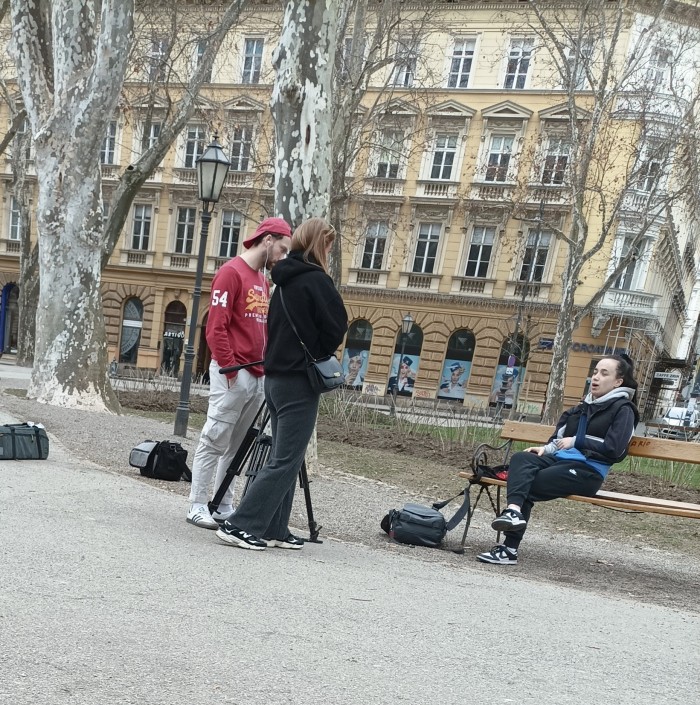2024
16 February, Friday
My taxi driver from the airport was a bit like an older Peter Sellers. We got on well and soon he showed me a selfie video in which he introduced a passenger he didn’t meet every day. The camera turned to an amused Luka Modrić.
From Hotel Dubrovnik I went and got something quick to eat, before moving on to Krolo until half past ten. At the counter I was next to three good-looking ladies who got quite a lot of drinks bought for them for being nice scenery. Eventually the dark one (very pretty) started glancing over, as if shots goggles were sharpening her vision. I too bought them a round, before I left, but I’d also given them a couple of bar stools earlier. They had to be persuaded to take them. The dark girl was willing to stand. She had an exquisite smile and a tasteful grey-green jacket. Nail extensions suggested hairdresser from among the caring professions.
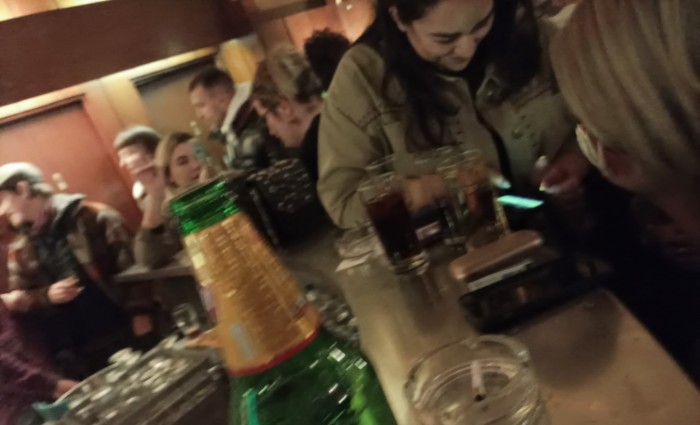
Of the familiar faces among the male patrons, the man with the rug adjusted it at one point. He was only on water. The old lad with glasses who gave me back my bar stool (2023) turned up on my left and I had a chat with him and got him a drink, as I did for the distinguished man with the shaved head at the end of the counter, beyond the girls. The gent of the joint. He was on white wine and looked important, as he had free access to the back of the bar. Some of these characters are visible in a photo I took on my first visit.
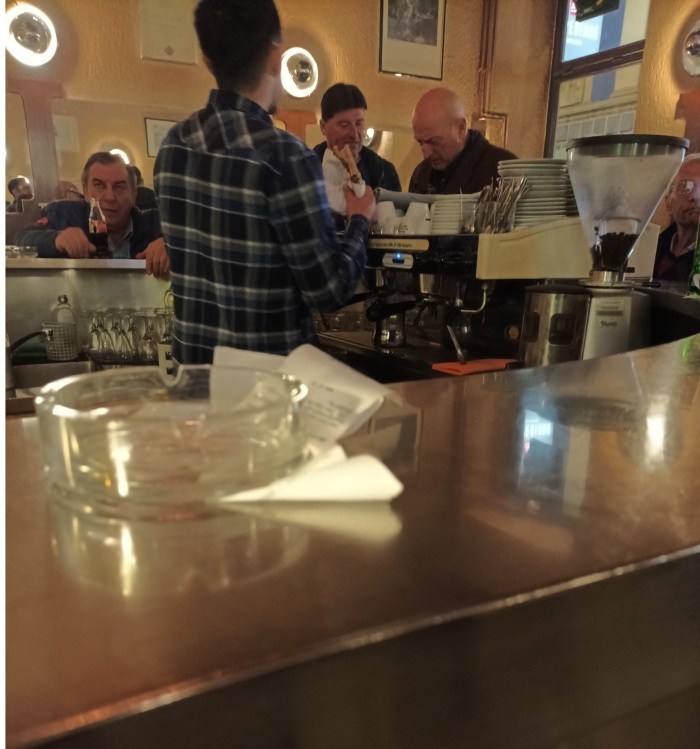
The man of distinction bought the babes two rounds and laughed when, on my way to the gents, I said to him, U Irskoj, daju nešto malo natrag. Despite the little joke about reciprocity, the girls weren’t bothering anyone. They were just out to enjoy the night. Krolo isn’t a place for noses in the air. Their chief benefactor and I later exchanged a round. It’s a great pub. It sits next door to an undertaker’s.
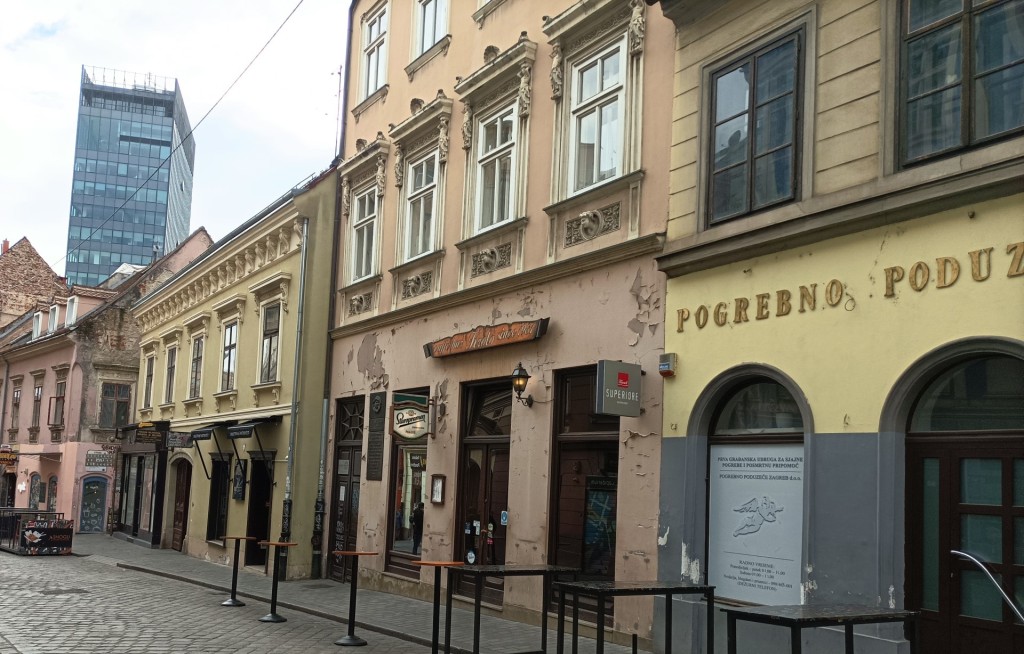
17 February, Saturday
It turned out I was very tired, and I slept long, even though, after half seven, a wan burst in on me when I was spread-eagled under nothing but a t-shirt. Unfortunately, she wasn’t the entertainment. It must have been a cleaning lady making a mistake.
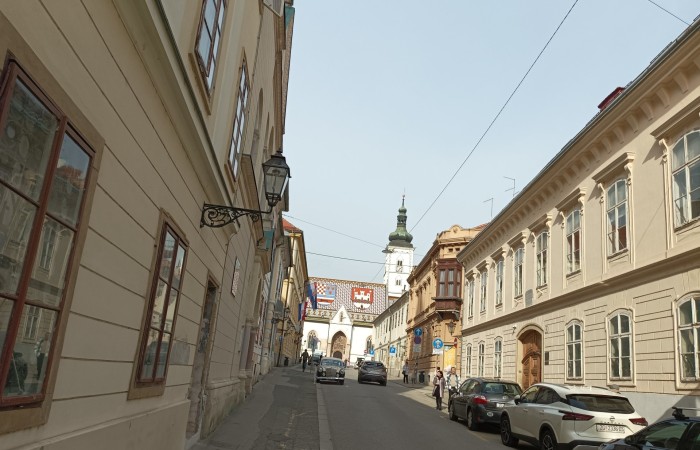
In the middle of the day, I went up to Grič. The sun was shining. I went up via Mesnička and soon got away from the crowds of the lower town. In Pod Starim Krovovima I had three ‘small’ ones. A grey-beard poetry session ended while I was there, and then, near the bar, a young man in glasses in his thirties started tipping away on guitar and vocals. I gave him a tenner as I left. He seemed genuinely surprised that I funded his jam.
I could have stayed up there longer but hadn’t eaten since breakfast, so it seemed wise to do that. Around four I headed down Radićeva and crossed Krvavi Most, where I spotted wedding snaps in progress.
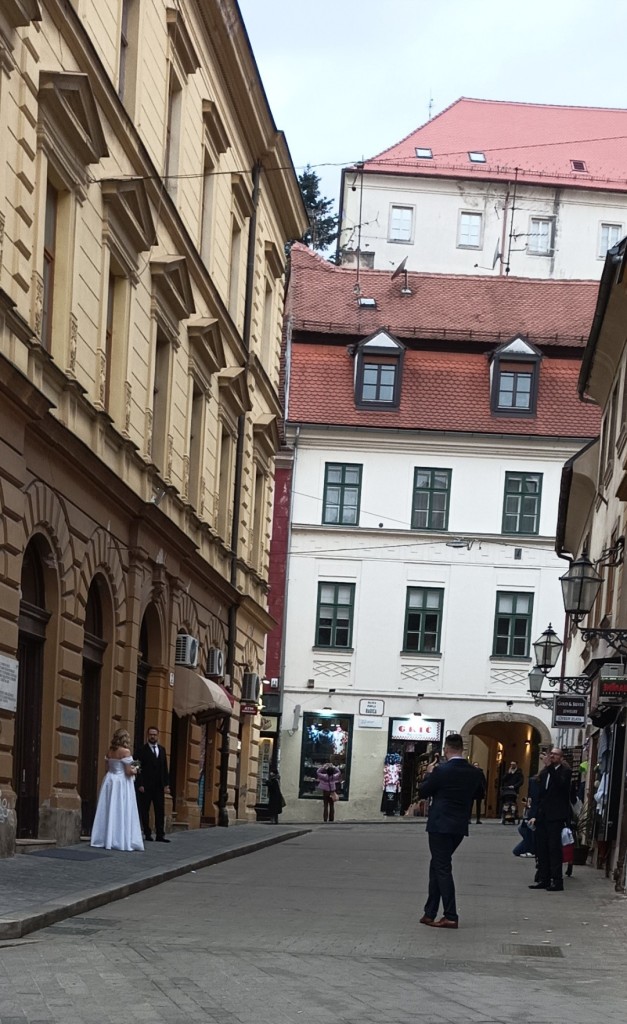
I was on my way to Leonardo’s on Skalinska, which runs up from Tkalčićeva ulica, the Zagreb entertainment strip. The odrezak wasn’t crisp like the first time there (2022) but it was quick, and I got it into me without side effects.
Tonight, by accident, I came across the sheltered Pingvin kiosk on Teslina in the lower town and a non-greasy kebab meal there (with a drink and a small bag of chips/fries) did the trick once more. The big Croat inside with the two little Chinese women (there for the cooking) asked me for a euro to make the change easier (i.e. for a tenner back out of twenty) but I didn’t have any sitan novac, so I went, OK, pet natrag, je dosta, and I got a fiver back with a beam of success. But it was worth it. When I told him that before I left, he gave me the same knowing smile. I’d say he’d seen it all from in there.

18 February, Sunday
At eight this morning, a man opened my door, again without even a knock. I guessed technician. I’m back from breakfast now at ten and, as I left the lift, a young Indian fella seemed to have just emerged from my room, again. Wtf is going on with them? Multiple intruders.
On a bench in the city centre park called Zrinjevac, killing time before heading to the airport, I overheard nearby three young people with a camera conducting an interview in Irish. The interviewee was a girl with her arm in a sling, an injury she got from Brazilian jujitsu. She had an American accent. When I spoke to them (“Maith sibh, agallamh thar barr…”), they were even more amazed at an Irish speaker turning up than I was.
